LGBT talk palace
27 posts
• Page 1 of 1
LGBT talk palace
talk about being LGBT or whatever
im bisexual and my math teacher in 8th grade started the realization. actor who played jacob from twilight(lol) later made me realize 100%. nobody IRL knows and im not sure that i need to tell them until i date a guy.
im bisexual and my math teacher in 8th grade started the realization. actor who played jacob from twilight(lol) later made me realize 100%. nobody IRL knows and im not sure that i need to tell them until i date a guy.
- 3
-

JonjoShelvey - Posts: 388
- Joined: Wed Oct 09, 2013 4:52 am
- Reputation: 1689
Re: LGBT talk palace
Don't ever feel bad about feelings. If something hurts or feels good or makes you feel guilty just sit and think about it until you work out how it makes you.
This was my resolution and its making me more comfortable with myself, even when I have to deal with things that hurt or make me feel sad. I'll never ever again say "I don't want to think about that. Ignorance is bliss"
This was my resolution and its making me more comfortable with myself, even when I have to deal with things that hurt or make me feel sad. I'll never ever again say "I don't want to think about that. Ignorance is bliss"
- 4
-

Bobbin.Threadbare - Posts: 941
- Joined: Tue Oct 01, 2013 5:07 pm
- Location: London
- Reputation: 6104
Re: LGBT talk palace
absolutely. we have to be gentle with ourselves, but it's so rare to hear/realize that. i've been working on it too.
- 0
-
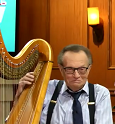
YoungCanoeist - Posts: 255
- Joined: Tue Aug 06, 2013 9:33 am
- Reputation: 1562
Re: LGBT talk palace
I think I might be attracted to guys but would be totally ostracized from my group of friends if I let it be known.
Sexuality is such a weird-grey-sliding scale-web of confusion and people need to stop treating it like it's a black and white concept where you're either one way or the other.
Sexuality is such a weird-grey-sliding scale-web of confusion and people need to stop treating it like it's a black and white concept where you're either one way or the other.
- 3
a disaster is a terrible thing to waste
-
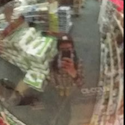
purkinje - Posts: 416
- Joined: Mon Sep 23, 2013 4:25 pm
- Location: ny/boston/jail
- Reputation: 1598
Re: LGBT talk palace
Some people are so beautiful that I'm attracted to them regardless of gender.
- 8
-

Rosenrot - Posts: 146
- Joined: Thu Jul 25, 2013 9:14 pm
- Reputation: 2073
Re: LGBT talk palace
I sometimes feel almost bad about my bisexuality around other LGBT people. Not because I'm not comfortable with it, I'm fully good with myself. It seems that in many LGBT spaces there's a common thread of shared difficulty and that's not something I've experienced. I didn't realize I was into guys too until years into a committed heterosexual monogamous relationship, which means that I never have to worry about being judged or coming out to my parents or anything of that nature. I'd love to talk more/share with more LGBT people but I often get a sort of "why are you here" jizz.
- 2
-
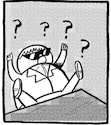
UnwashedMolasses - Posts: 551
- Joined: Fri Sep 27, 2013 9:42 pm
- Reputation: 2222
Re: LGBT talk palace
I feel you, i don't really have any problems with my sexuality. I'm with Feminist right now and there's nothing really pressing me to come out. I don't want any sort of emotional relationship with men. It's not really intrinsic to my identity in any way shape or form and it's much easier to just say i'm straight than to explain it to other people. It's kinda strange i don't really feel any connection to the LGBTQ community, there's never really been any struggle to accept myself or for others who do know to accept me. My parents don't know and frankly i don't wish them to know something that's purely sexual to me, i feel like it'd be the same thing as sharing what my fetishes are with them.
- 2
-

Stingray Sam - Posts: 464
- Joined: Thu Sep 12, 2013 6:03 pm
- Location: Ceres Crossroads
- Reputation: 1290
Re: LGBT talk palace
wow molasses that is exactly how i feel. do i have the right to feel personally offended by homophobia?? am i allowed to feel victorious when anti-gay laws are struck down or removed? the strange anti-bisexual feelings from the LG community confuse me.
im kinda flamboyant in real life but i kinda feel like i tone it down around people. i want to wear 'gay thug club wear', go to a pride parade, talk about what latest celebrity/stranger on the street is hot with my girl friends, but i dont want the conversation of my sexuality to come up because im not open about that right now.
i wish i could come out but me and my best friend have a really close relationship (i like rubbing his head and giving massages) and strange sense of humor (genitals are often flashed)and i dont want to ruin any of that even though im not physically attracted to him. idk im kinda conflicted right now. i dont have any potential male romantic relationships in the works so i feel like it's mostly irrelevant to come out.
sorry for rambling im high
im kinda flamboyant in real life but i kinda feel like i tone it down around people. i want to wear 'gay thug club wear', go to a pride parade, talk about what latest celebrity/stranger on the street is hot with my girl friends, but i dont want the conversation of my sexuality to come up because im not open about that right now.
i wish i could come out but me and my best friend have a really close relationship (i like rubbing his head and giving massages) and strange sense of humor (genitals are often flashed)and i dont want to ruin any of that even though im not physically attracted to him. idk im kinda conflicted right now. i dont have any potential male romantic relationships in the works so i feel like it's mostly irrelevant to come out.
sorry for rambling im high
- 1
-

JonjoShelvey - Posts: 388
- Joined: Wed Oct 09, 2013 4:52 am
- Reputation: 1689
Re: LGBT talk palace
oops, this was meant to be a short post but it kind of grew into something bigger. apologies if it reads like the ramblings of a mad man.
i don't think its unusual for bisexuals to feel somewhat disconnected from the lgbt scene, which is perhaps better described as an lg scene given that there is a small, but significant part of the lgbt scene that does not view bisexuals and transgendered individuals particularly favourably. The issue of inclusiveness for transgendered people is perhaps more understandable given that it is an issue of gender identity as opposed to sexual identity but, in truth, identity formation in regards to both sexuality and gender have a lot of common ground, particularly with regards to gender as a discursive process. In terms of bisexuality it's not unheard of for homosexuals (and, of course, heterosexuals) to simply dismiss bisexuality (particularly in males, curiously) as being non-existent, and this is obviously not helped by homosexuals who choose to 'stagger' the 'coming out' process by claiming to be bisexual, and so for many people bisexual identity is simply a false intermediary. However, in my view, the key problem with bisexuality is that most bisexuals can lead perfectly happy and fulfilling lives within heteronormal society, and perhaps without ever needing to come out. The result, I think, is that many bisexuals never really connect with the non-heterosexual scene/cause, or do so but only covertly; and that some homosexuals are perhaps envious of this.
Having said that everything I just wrote above was a massive generalisation and simplification, and I'm not really in a position to add much to the debate, as I haven't had any direct involvement with the lgbt movement. However, the fact that bisexuals often feel disconnected from that scene, which has been alluded to in other posts, is quite a small problem in the grand scheme things, at least from my point of view anyway. I'd say that the biggest problem with the lgbt scene is that it continues to (re)present itself in opposition to hetero-sexuality/normativity. Of course, I admit that it is virtually impossible to invent a sense of community amongst heterogeneous non-heterosexuals and non-cisgendered individuals without differentiating yourself in someway and, somewhat inevitably, 'othering' those who don't belong, but I feel that in most 'Western' countries it's time to move on to the next stage. Feminists and post-structuralists have been pulling heteronormativity apart and looking at how its produced discursively (i.e. heterosexuality is no more 'natural' than any other sexual identity) for quite a while now, and I think it'd be good for the lgbt movement if these discourses started filtering into popular discourse. If people began to see society in terms of patriarchy and performance/performativity I think it'd be beneficial in a lot of different ways. I'm not really sure where I'm going with this, maybe I've just read too much of Judith Butler.
Anyway, arriving at the point i originally wanted to make, i think my utopian vision (for lack of a better term) is a society where sex/gender (feel free to distinguish between the two, even if i personally would say that they're essentially the same thing and both socially constructed) is completely irrelevant in terms of sexual/romantic attraction. As far as I'm concerned humans are always going to be attracted to other humans and gender/sex just seems to be a completely arbitrary way of categorising this attraction. So my utopia is where 'lesbian', 'gay', 'bisexual' etc are all eliminated from populist language/discourse and its simply accepted that people are attracted to others, sometimes people of the same gender, sometimes people of the opposite gender. Though, of course, my true utopia would pretty much dispense of gender/sex altogether, atleast in its current linguistic and discursive sense.
I'm not entirely sure if I have any idea what I just wrote.
i don't think its unusual for bisexuals to feel somewhat disconnected from the lgbt scene, which is perhaps better described as an lg scene given that there is a small, but significant part of the lgbt scene that does not view bisexuals and transgendered individuals particularly favourably. The issue of inclusiveness for transgendered people is perhaps more understandable given that it is an issue of gender identity as opposed to sexual identity but, in truth, identity formation in regards to both sexuality and gender have a lot of common ground, particularly with regards to gender as a discursive process. In terms of bisexuality it's not unheard of for homosexuals (and, of course, heterosexuals) to simply dismiss bisexuality (particularly in males, curiously) as being non-existent, and this is obviously not helped by homosexuals who choose to 'stagger' the 'coming out' process by claiming to be bisexual, and so for many people bisexual identity is simply a false intermediary. However, in my view, the key problem with bisexuality is that most bisexuals can lead perfectly happy and fulfilling lives within heteronormal society, and perhaps without ever needing to come out. The result, I think, is that many bisexuals never really connect with the non-heterosexual scene/cause, or do so but only covertly; and that some homosexuals are perhaps envious of this.
Having said that everything I just wrote above was a massive generalisation and simplification, and I'm not really in a position to add much to the debate, as I haven't had any direct involvement with the lgbt movement. However, the fact that bisexuals often feel disconnected from that scene, which has been alluded to in other posts, is quite a small problem in the grand scheme things, at least from my point of view anyway. I'd say that the biggest problem with the lgbt scene is that it continues to (re)present itself in opposition to hetero-sexuality/normativity. Of course, I admit that it is virtually impossible to invent a sense of community amongst heterogeneous non-heterosexuals and non-cisgendered individuals without differentiating yourself in someway and, somewhat inevitably, 'othering' those who don't belong, but I feel that in most 'Western' countries it's time to move on to the next stage. Feminists and post-structuralists have been pulling heteronormativity apart and looking at how its produced discursively (i.e. heterosexuality is no more 'natural' than any other sexual identity) for quite a while now, and I think it'd be good for the lgbt movement if these discourses started filtering into popular discourse. If people began to see society in terms of patriarchy and performance/performativity I think it'd be beneficial in a lot of different ways. I'm not really sure where I'm going with this, maybe I've just read too much of Judith Butler.
Anyway, arriving at the point i originally wanted to make, i think my utopian vision (for lack of a better term) is a society where sex/gender (feel free to distinguish between the two, even if i personally would say that they're essentially the same thing and both socially constructed) is completely irrelevant in terms of sexual/romantic attraction. As far as I'm concerned humans are always going to be attracted to other humans and gender/sex just seems to be a completely arbitrary way of categorising this attraction. So my utopia is where 'lesbian', 'gay', 'bisexual' etc are all eliminated from populist language/discourse and its simply accepted that people are attracted to others, sometimes people of the same gender, sometimes people of the opposite gender. Though, of course, my true utopia would pretty much dispense of gender/sex altogether, atleast in its current linguistic and discursive sense.
I'm not entirely sure if I have any idea what I just wrote.
- 4
-

wiggly--woo - Posts: 205
- Joined: Sat Feb 08, 2014 4:09 pm
- Location: 54°58′20″N 1°36′30″W
- Reputation: 824
Re: LGBT talk palace
high school in america really breeds homophobia and I was pretty fucking homophobic. In highschool you get into this mindset that if you associate with gay people or do "gay" things it'll like rub off on you or you'll be ostracized because of it. Wish I'd taken the time to think through it and realize that the way other people live their lives has no impact on mine. Embarrassing that it took my twin brother coming out to me to wisen the fuck up!
This is my personal male highschool experience maybe its different outside of the conservative stronghold of Chicagoland. I don't know how to solve this problem, but I think teenagers eventually grow up, though a few of my friends haven't
wanted to bump this thread
This is my personal male highschool experience maybe its different outside of the conservative stronghold of Chicagoland. I don't know how to solve this problem, but I think teenagers eventually grow up, though a few of my friends haven't
wanted to bump this thread
- 6
-
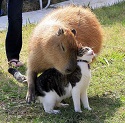
BIGBEE - Posts: 1139
- Joined: Sun Jul 27, 2014 1:38 pm
- Reputation: 5891
Re: LGBT talk palace
Is it out of place to draw comparisons between being bisexual and being mixed-race? Outside of the differences between sexuality and race dynamics, it seems like there's a similarity in the feeling of being between two cultures and being expected to personally identify with one of the two because there isn't a known middle ground - as you were saying with the models of hetero and homosexuality, but the lack of bisexual models.
With both I have hope that time will bring greater participation or inclusion and more comfort for the people in between. On that note, actually, does anyone have any ideas for ways to promote that kind of space/culture? I'd love to support something like that if I could but I don't know if there are organizations already working towards it.
With both I have hope that time will bring greater participation or inclusion and more comfort for the people in between. On that note, actually, does anyone have any ideas for ways to promote that kind of space/culture? I'd love to support something like that if I could but I don't know if there are organizations already working towards it.
- 5
-

UnwashedMolasses - Posts: 551
- Joined: Fri Sep 27, 2013 9:42 pm
- Reputation: 2222
Re: LGBT talk palace
how can someone identify as a different gender? what does that mean to identify as a different gender it doesn't make sense.
i understand how it's good that many gender stereotypes are disappearing as i have first hand experience with clothing of course, but why is there an argument to rid of gender completely?
why is there such a backlash against identifying as a different gender or is this only present on the internet haha?
i understand how it's good that many gender stereotypes are disappearing as i have first hand experience with clothing of course, but why is there an argument to rid of gender completely?
why is there such a backlash against identifying as a different gender or is this only present on the internet haha?
- 0
-
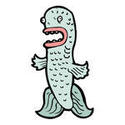
earthonator - Posts: 112
- Joined: Mon Dec 15, 2014 1:03 am
- Reputation: 479
Re: LGBT talk palace
I have several transgender friends both male and female and in all cases they feel a sense of unbelonging in their own body. They look at themselves in a mirror and feel unhappy, they are living in a body that wasn't meant for them and it absolutely destroys them. Identifying as a different gender means that you FEEL like you are gender, you feel like you should have been born as that gender and that being treated like that is a huge step for them to be happy with their lives.
And to answer your third question, I honestly have no idea why there is such anger and backlash towards the transgender community. I realize there are extremists out there, people who go around and insult heterosexuals, white males and get offended by pretty much everything and then freak the fuck out about it. And while a lot of these people ARE members of the LGBT community I think they just deserve to seen as what they are, EXTREMISTS. These people do not, and should not represent the LGBT community because 99% of us are just regular people with different feelings, and views on our own lives and the world. Every transgendered person I've met has been great and some have even become my best friends, the general member of the trans or LGBT community as a whole is not some crazy "SJW" that the internet and conservative platforms might make you try to believe, they really are good people. This backlash is just being caused because of these terrible extremists in our community who poorly represent our feelings and just us as people overall. It's so silly that we are being judged based off the actions of 1% of us, and I'm pretty sick of it.
And to answer your third question, I honestly have no idea why there is such anger and backlash towards the transgender community. I realize there are extremists out there, people who go around and insult heterosexuals, white males and get offended by pretty much everything and then freak the fuck out about it. And while a lot of these people ARE members of the LGBT community I think they just deserve to seen as what they are, EXTREMISTS. These people do not, and should not represent the LGBT community because 99% of us are just regular people with different feelings, and views on our own lives and the world. Every transgendered person I've met has been great and some have even become my best friends, the general member of the trans or LGBT community as a whole is not some crazy "SJW" that the internet and conservative platforms might make you try to believe, they really are good people. This backlash is just being caused because of these terrible extremists in our community who poorly represent our feelings and just us as people overall. It's so silly that we are being judged based off the actions of 1% of us, and I'm pretty sick of it.
- 8
-
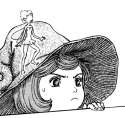
anth - Posts: 57
- Joined: Thu Aug 18, 2016 1:18 am
- Location: seattle
- Reputation: 589
Re: LGBT talk palace
care to explain which part of that post you so strongly disagreed with that you had to neg?
- 7
-
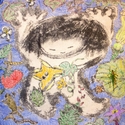
mc-lunar - Posts: 585
- Joined: Sat Jan 04, 2014 12:27 am
- Reputation: 3537
Re: LGBT talk palace
This is basic prejudice 101 ptozzi. Regardless of how "correct" you think stereotypes are, assuming or enforcing things based on arbitrary/societal values leads us down bad roads that we don't need to go down.
This could be an opportunity for growth for you if you have a good think about it then come back and apologise.
This could be an opportunity for growth for you if you have a good think about it then come back and apologise.
- 18

-

bels - Yung Winona
- Posts: 5087
- Joined: Thu Jul 11, 2013 2:43 pm
- Reputation: 18872
Re: LGBT talk palace
im no expert psychologist or anything along those lines, only took a couple psych courses several years ago
i did study a decent amount of human bio and neuro back when i was in school and i can confidently say that, barring extreme cases that are few and far between, genetics as an influence on behaviour is nearly nothing compared to societal queues and pressures.
sure there are subtle differences on average between biological sexes but the overlap and similarities vastly outweigh any differences (the same can be said of ethnicity)
i did study a decent amount of human bio and neuro back when i was in school and i can confidently say that, barring extreme cases that are few and far between, genetics as an influence on behaviour is nearly nothing compared to societal queues and pressures.
sure there are subtle differences on average between biological sexes but the overlap and similarities vastly outweigh any differences (the same can be said of ethnicity)
- 1
-

trichomatic - Posts: 120
- Joined: Sun May 04, 2014 11:26 pm
- Location: toilet
- Reputation: 770
Re: LGBT talk palace
…it may be time to yank this bit of the conversation into a new thread, but if it's still here…
I'm a substitute teacher in a K-8 district. I'm sticking to this part of ptozzi's assertions because this is what I know best. Regardless, I don't agree with him.
I'm not in Assessments, but from what I've gathered, it's difficult to accurately assess preschoolers (and therefore preschool teachers) because preschoolers' willingness to sit still and do what a newly-introduced adult tells them to do isn't tightly correlated with how well the kid will do later in life — or at least less tightly correlated than, say, tests given to older students. If it's tough to test the students accurately, it's tough to test the teachers. Because of this, I don't buy ptozzi's assertion that women tend to be better preschool teachers. It could be true, but I'd need to see concrete evidence in favor of this assertion.
What I have observed is that there's a general gradient in how male teachers distribute themselves across the grade range — they're loosely clustered toward the upper grades. I suspect this is because most men, on average, are more like my mother and me — they'd rather deal with preteen 'tude than little kids who cry for mommy and get only a tiny slice of all the jokes they could tell in passing. On the other hand, some do equally well at any age — I know a guy who was a happy, productive 2nd-grade teacher and was a happy, productive 7/8th-grade computer teacher.
Now, what are we to make of this?
If you want to be a teacher, make sure that you're exposed to a wide variety of classrooms (I'd certainly hope you're a substitute and getting jobs before you decide to commit to teacher credentialing classes). You may find that the kinds of kids you thought you'd like to be around aren't the ones you actually like being around. This is good advice in general, whether you're a man or a woman. Furthermore, being a man doesn't make this much better advice, I'd wager; my mother thought she'd prefer eagerer-to-please little kids, but after student teaching both 2nd graders and 5th graders, she realized she preferred older students.
If you meet a man who says he teaches, he probably teaches students who're 7th grade or older — but if he teaches younger students, that's fine too. I trust him to try to and find the age of students that he prefers, and so I feel no obligation to try and steer him to teach younger students or older students. ("How did you end up teaching the students you teach, and how do you like it compared to other grades?" is a great conversation starter at least among teachers; it's not uncommon to strike up a conversation where both participants end up saying "egads, I could never stand the kinds of students you prefer; I'd run screaming by Christmas Break").
Both bels and I agree that "usually" shouldn't be conflated with "ought"; the two may or may not have anything to do with each other. Where I think we part ways is where he appears to conflate "assumption" and "enforcement" inasmuch as he thinks both are bad. I'm against trying to steer male teachers towards or away from the younger grades (I'm anti-enforcement), but I don't think it's a bad thing to notice and discuss that men, for whatever reasons, tend to avoid the lower grades.
I'm a substitute teacher in a K-8 district. I'm sticking to this part of ptozzi's assertions because this is what I know best. Regardless, I don't agree with him.
I'm not in Assessments, but from what I've gathered, it's difficult to accurately assess preschoolers (and therefore preschool teachers) because preschoolers' willingness to sit still and do what a newly-introduced adult tells them to do isn't tightly correlated with how well the kid will do later in life — or at least less tightly correlated than, say, tests given to older students. If it's tough to test the students accurately, it's tough to test the teachers. Because of this, I don't buy ptozzi's assertion that women tend to be better preschool teachers. It could be true, but I'd need to see concrete evidence in favor of this assertion.
What I have observed is that there's a general gradient in how male teachers distribute themselves across the grade range — they're loosely clustered toward the upper grades. I suspect this is because most men, on average, are more like my mother and me — they'd rather deal with preteen 'tude than little kids who cry for mommy and get only a tiny slice of all the jokes they could tell in passing. On the other hand, some do equally well at any age — I know a guy who was a happy, productive 2nd-grade teacher and was a happy, productive 7/8th-grade computer teacher.
Now, what are we to make of this?
If you want to be a teacher, make sure that you're exposed to a wide variety of classrooms (I'd certainly hope you're a substitute and getting jobs before you decide to commit to teacher credentialing classes). You may find that the kinds of kids you thought you'd like to be around aren't the ones you actually like being around. This is good advice in general, whether you're a man or a woman. Furthermore, being a man doesn't make this much better advice, I'd wager; my mother thought she'd prefer eagerer-to-please little kids, but after student teaching both 2nd graders and 5th graders, she realized she preferred older students.
If you meet a man who says he teaches, he probably teaches students who're 7th grade or older — but if he teaches younger students, that's fine too. I trust him to try to and find the age of students that he prefers, and so I feel no obligation to try and steer him to teach younger students or older students. ("How did you end up teaching the students you teach, and how do you like it compared to other grades?" is a great conversation starter at least among teachers; it's not uncommon to strike up a conversation where both participants end up saying "egads, I could never stand the kinds of students you prefer; I'd run screaming by Christmas Break").
Both bels and I agree that "usually" shouldn't be conflated with "ought"; the two may or may not have anything to do with each other. Where I think we part ways is where he appears to conflate "assumption" and "enforcement" inasmuch as he thinks both are bad. I'm against trying to steer male teachers towards or away from the younger grades (I'm anti-enforcement), but I don't think it's a bad thing to notice and discuss that men, for whatever reasons, tend to avoid the lower grades.
- 4
“clothing for attractive rich people in their 20s to go to weddings in” — Zack Johnson on Vineyard Vines
-

adiabatic - Posts: 301
- Joined: Tue Mar 31, 2015 12:10 pm
- Reputation: 374
Re: LGBT talk palace
I've been going to Cooper Union for a month now and have been spending more time than I had ever expected in conversations about queer and kink culture. I'm a white cishet male, and I dress pretty traditionally, so I had worried a lot about making people uncomfortable just by being associated with negative things. I still do feel... guilty(?) when I can only extend my empathy while people share stories about targeting or about not being accepted by their families. It's made me really happy seeing people grow more comfortable around me. I really think this is an important part of being here that my friends, at home in South Carolina, are missing out on.
- 3
-
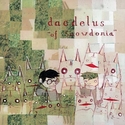
popcorn - Posts: 591
- Joined: Sun May 18, 2014 5:38 pm
- Location: goldheart mountaintop
- Reputation: 1575
-
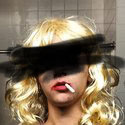
harmsalmon - Posts: 622
- Joined: Wed Mar 26, 2014 5:35 pm
- Location: st louis, mo --> upstate ny
- Reputation: 4653
27 posts
• Page 1 of 1
Who is online
Users browsing this forum: No registered users and 19 guests

